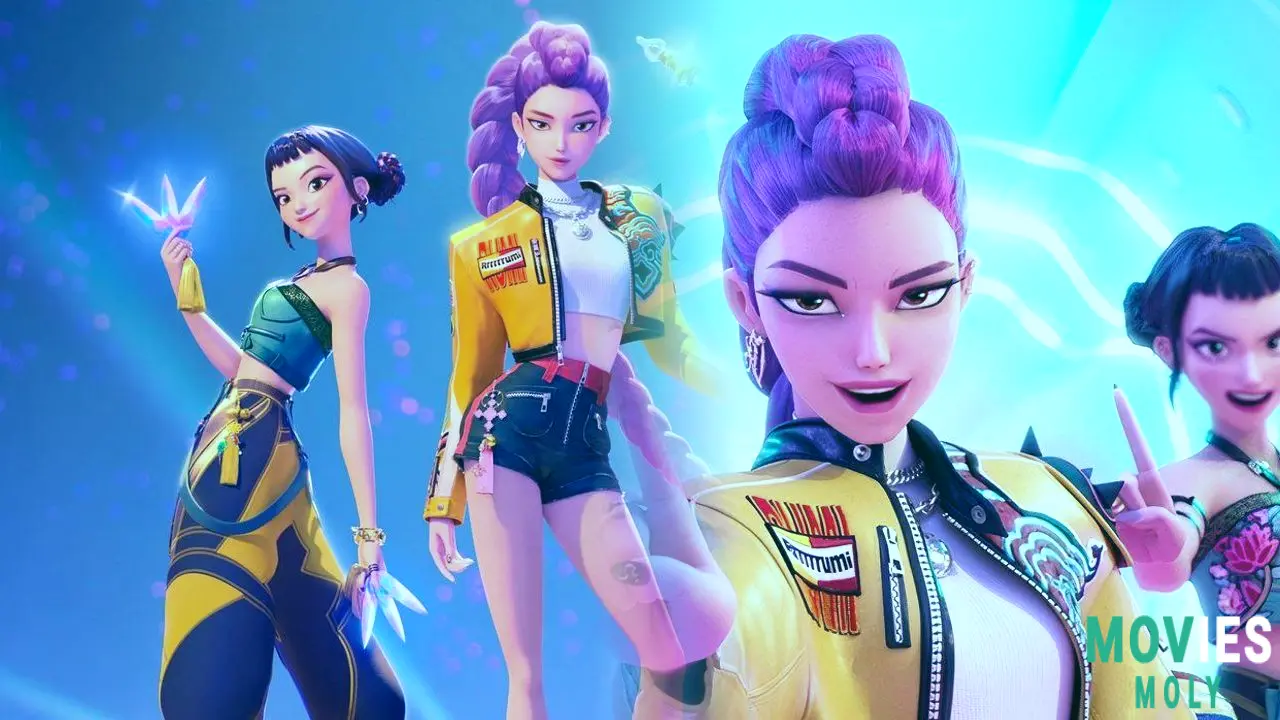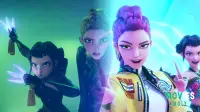While I was watching KPop Demon Hunters, I was struck by how important the music is to the drama. The movie does a great job of bringing K-pop to life on screen by combining amazing visuals with a heart-pounding soundtrack. Many amazing artists and producers helped form the sound, but I think Ejae's work as a songwriter and the voice of Rumi are what really make it work. Without EJAE, Rumi's complicated journey from K-pop star to self-accepting hero might not have had the same emotional impact.
The movie is about Rumi (Arden Cho), Mira (May Hong), and Zoey (Ji-young Yoo), who are all members of the K-pop group HUNTR/X. They have a secret existence as demon hunters that safeguard their fans. The Saja Boys, a rival K-pop group that is really devils in disguise, are their biggest problem. This arrangement needs the music to achieve two things: play catchy pop songs and express profound feelings. This is when EJAE's skills really show. Her art enables people really get to know Rumi's inner world and how she fought for honesty in a world full of deception.
"How It's Done" Sets Up Rumi's Journey and EJAE's EffectThe first note of EJAE's voice sets the mood for HUNTR/X.
The movie starts with "How It's Done," a strong song that EJAE wrote and sang. This tune gets us right into the action. Rumi, Mira, and Zoey are fighting demons on a luxury plane before landing smoothly in a stadium full of people to finish the song. It has to be a hit, full of excitement, and show off the unique sound of HUNTR/X. From the very beginning, EJAE's performance draws you in. Her voice makes Rumi the "diva" of the bunch right away, the one you will follow. It also hints at how Rumi will lose her voice later in the novel.
The opening scene with "How It's Done" is a great example of how KPop Demon Hunters uses music to swiftly identify characters. Through EJAE's voice, we hear Zoey's explosive rap, Mira's unexpected energy, and Rumi's strong presence. This song does more than just kick things off; it establishes the framework for our emotional engagement in Rumi's quest. The sound draws us in, and we're eager to cheer for her even though we don't fully comprehend her problems.
EJAE's singing makes "Golden" a personal anthem for Rumi.
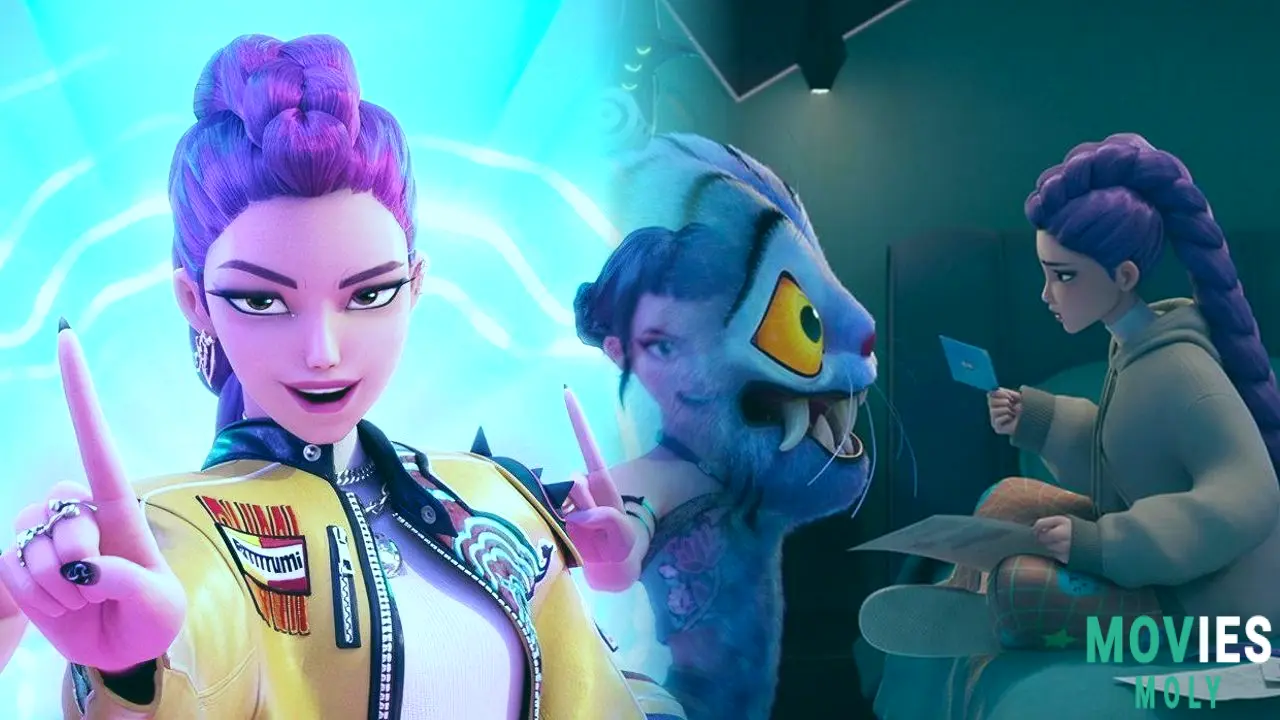
EJAE Shows Rumi's Deepest Desires and Inner Struggles
"Golden," another song that EJAE wrote and sang, is the film's "I want" song. HUNTR/X intends to seal the Honmoon, the power that watches over the planet, so that demons will never come again. The song is aimed to inspire people to follow their dreams. But EJAE's singing really shines in the middle of this catchy song. Rumi sings alone in her dressing room, which makes the song sound deeper. She sees the demon markings on her arms and feels quite alone here.
EJAE's voice changes; it gets softer and more personal. This part is a short yet crucial look into Rumi's mind. She wants to seal the Honmoon so that her demon scars go away and she may be free of that part of herself. This is a time when you are open to being hurt. EJAE's ability to express such deep emotion in this subtle way makes Rumi's internal battle feel very genuine to me. It establishes the notion that even while striving for a significant objective, individual suffering can profoundly alienate a person. This is a recurrent theme in Rumi's story, and she does a great job of getting it over through her singing.
EJAE's performance of "Takedown" shows how raw the song is.
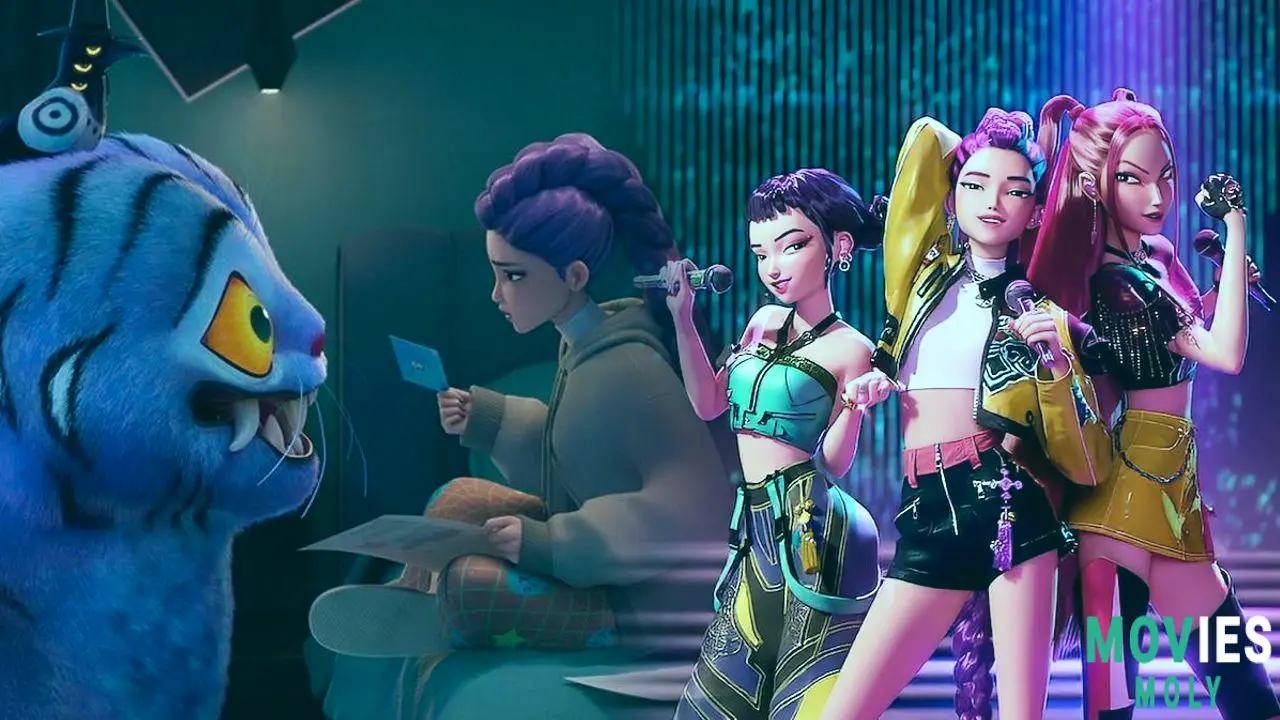
EJAE's portrayal of Rumi's internal conflict during the battle anthem
"Takedown" is HUNTR/X's battle song versus The Saja Boys. It's a scary "diss track" meant to scare the devils. EJAE is also recognized as a composer and singer on this song. The song is filled of anger and revenge, which shows how the gang feels. Rumi's personal struggle with this song is what makes it interesting. Because she is half-demon, it is hard for her to sing the nasty lyrics. Rumi's mounting uneasiness and inner conflict are shown in EJAE's performance.
Rumi's attempts to make the lyrics less harsh are not successful. This shows how much Mira and Zoey would despise her if they knew what she was hiding. In the end, the song turns on Rumi in a nightmare scene and becomes an attack on her. EJAE's singing in this part makes Rumi seem weak. She is a strong performer, but her voice breaks when she has to tell the truth. This makes the song not just a battle cry, but also a touching moment about accepting yourself and being afraid of being seen.
EJAE's duet on "Free" gives us a taste of a different future.
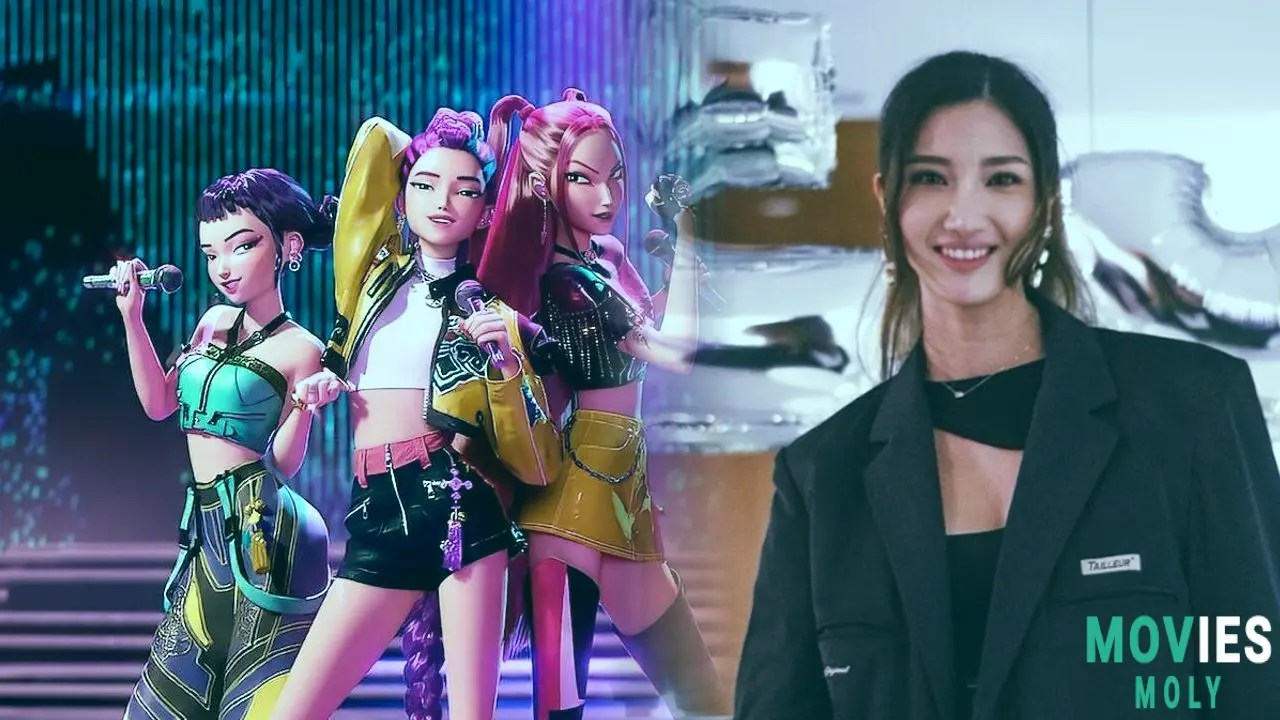
The Emotional Weight of Rumi and Jinu's Shared Weakness
"Free" is a sweet duet between Rumi and Jinu, and it's another song that EJAE sings. This ballad looks at the possible link between them. Even though they are on opposite sides, they tell each other their most private thoughts and wishes to be free. In this moment, I truly wanted them to win. EJAE's voice makes Rumi's hope and vulnerability come through, making their plan to get rid of the beast inside them feel very real. The song shows what they want their lives to be like and how they see each other for who they really are.
This song is a quiet moment in a movie full of action, but it is quite effective. It shows that EJAE can do more than simply high-energy pop; they can also do deep emotional music. Her voice sounds real, which helps sell the impression that these two characters might really work together, even though they don't get along. Even if they are in danger, it provides us a reason to hope for a different outcome for them.
"What It Sounds Like" Is EJAE's Strong Final Statement
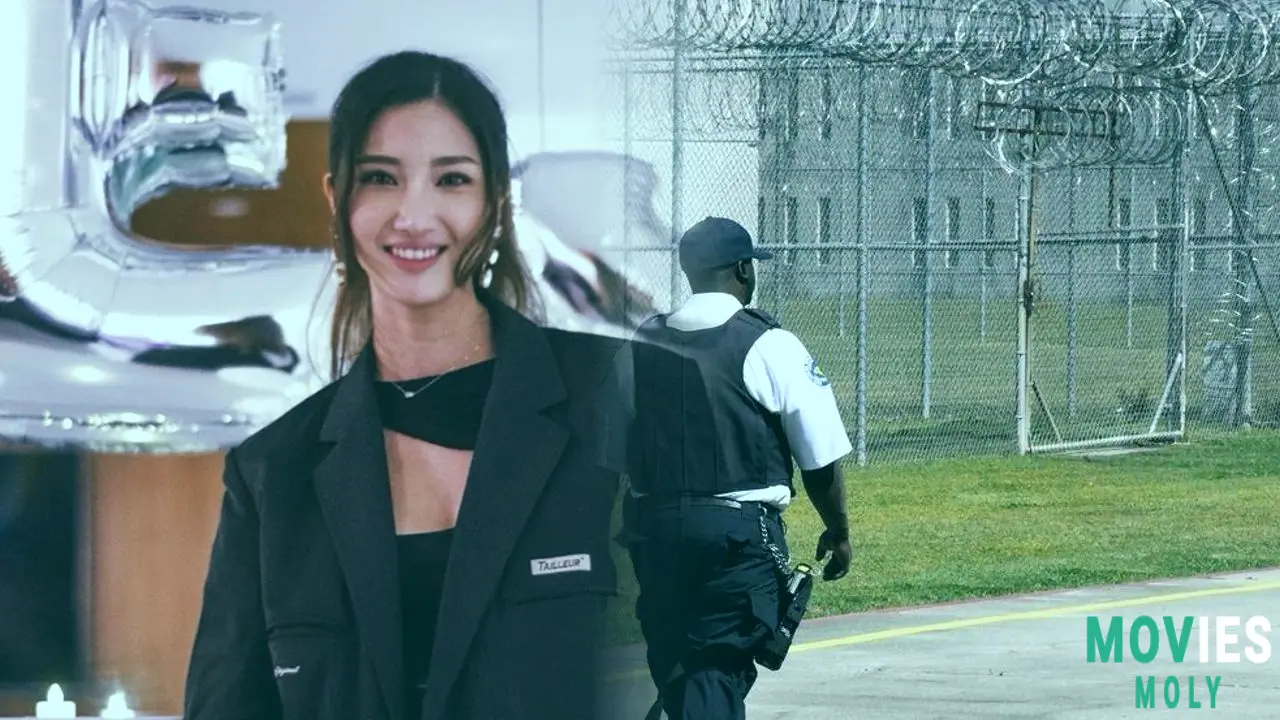
The film's message of being real and connected is supported by EJAE's vocals.
The song "What It Sounds Like" is the best part of the movie. It is both uplifting and very meaningful. EJAE is a writer and performer again. This song sums up Rumi's whole life. She understands that her first goal of sealing the Honmoon was misguided, so she decides to get rid of the idea of demons vs. humans. EJAE's performance of the hook "This is what it sounds like" becomes a rallying cry for being yourself and being accepted. People say her voice is "authentic" and "rich," which means it shows Rumi's true nature without any deceit.
This song is a real winner. Rumi draws back souls from the wicked world through her song. We see people waking up and make music together through EJAE's strong and real voice. The last scream of voices in the stadium drives home the main point of the movie: music brings us together, and being yourself is what really connects us. This finale really touched me. EJAE's part in getting this message over is really important; she does a great job of delivering the emotional finale of the story.
EJAE does more than simply sing on KPop Demon Hunters. She is a crucial songwriter and the voice of Rumi, and she gives the character depth and authenticity that the movie needs to be successful. Her performances let us feel Rumi's delight, anguish, optimism, and finally, acceptance of herself. Without EJAE's subtle contributions, the emotional weight of Rumi's story and the whole movie would have felt far less important. She is the real heart of the movie's music.
You can now watch KPop Demon Hunters on Netflix.

